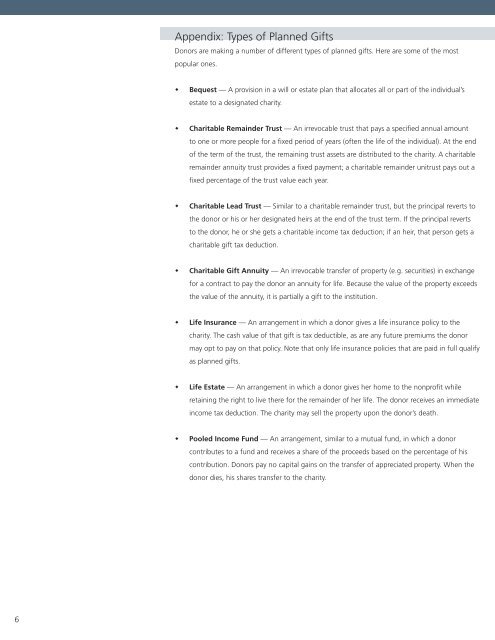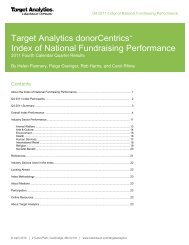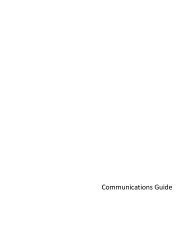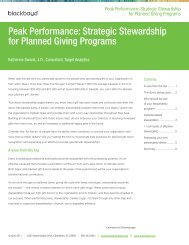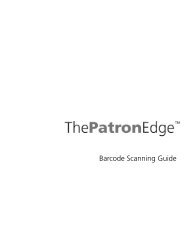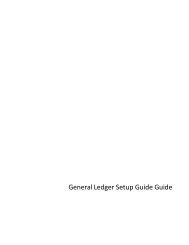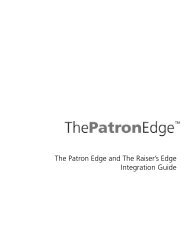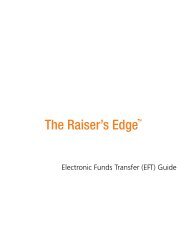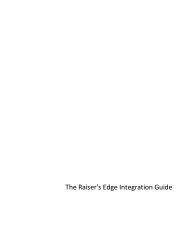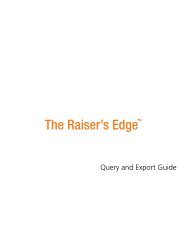White Paper Making Planned Giving Work for You - Blackbaud, Inc.
White Paper Making Planned Giving Work for You - Blackbaud, Inc.
White Paper Making Planned Giving Work for You - Blackbaud, Inc.
You also want an ePaper? Increase the reach of your titles
YUMPU automatically turns print PDFs into web optimized ePapers that Google loves.
Appendix: Types of <strong>Planned</strong> GiftsDonors are making a number of different types of planned gifts. Here are some of the mostpopular ones.• Bequest — A provision in a will or estate plan that allocates all or part of the individual’sestate to a designated charity.• Charitable Remainder Trust — An irrevocable trust that pays a specified annual amountto one or more people <strong>for</strong> a fixed period of years (often the life of the individual). At the endof the term of the trust, the remaining trust assets are distributed to the charity. A charitableremainder annuity trust provides a fixed payment; a charitable remainder unitrust pays out afixed percentage of the trust value each year.• Charitable Lead Trust — Similar to a charitable remainder trust, but the principal reverts tothe donor or his or her designated heirs at the end of the trust term. If the principal revertsto the donor, he or she gets a charitable income tax deduction; if an heir, that person gets acharitable gift tax deduction.• Charitable Gift Annuity — An irrevocable transfer of property (e.g. securities) in exchange<strong>for</strong> a contract to pay the donor an annuity <strong>for</strong> life. Because the value of the property exceedsthe value of the annuity, it is partially a gift to the institution.• Life Insurance — An arrangement in which a donor gives a life insurance policy to thecharity. The cash value of that gift is tax deductible, as are any future premiums the donormay opt to pay on that policy. Note that only life insurance policies that are paid in full qualifyas planned gifts.• Life Estate — An arrangement in which a donor gives her home to the nonprofit whileretaining the right to live there <strong>for</strong> the remainder of her life. The donor receives an immediateincome tax deduction. The charity may sell the property upon the donor’s death.• Pooled <strong>Inc</strong>ome Fund — An arrangement, similar to a mutual fund, in which a donorcontributes to a fund and receives a share of the proceeds based on the percentage of hiscontribution. Donors pay no capital gains on the transfer of appreciated property. When thedonor dies, his shares transfer to the charity.6


